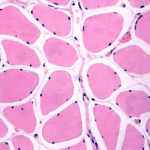I’ve been spending a bit of time in the simulator driving the 700 HP Porsche RWD RUF 911. That thing is a beast and such a transition from driving the Pro Mazda, my favorite car on the track. Gear heads (i.e., “motor enthusiasts”) have long marveled at the RUF version of this iconic car (for extra points, be sure to pronounce it correctly, it’s pronounced “roof,” not “ruff”) in large part thanks to a very special day in 1987 when a version of the RUF—the CTR—blew everyone’s mind ripping off a sickening lap on the most storied racing circuit of all time. That drive, which can be seen here, helped cement the car’s nickname, Yellowbird. Even if you have never attempted to drive a car at its limit, I think you’ll find this lap of the Nürburgring Nordschleife mesmerizing. I can watch videos like this for hours as I study the subtle hand movements and remarkable car control. But the deeper I get in my driving, the more I realize how much better the world’s best are. What’s that saying again? Something about the further we get from shore?
Picking up from last week’s mention of MDMA for PTSD, another drug perhaps more well-known in the party scene—esketamine (the nasal-spray form of the club drug ketamine)—has been gaining acceptance over recent years among psychiatrists as a potential treatment for severe depression. A double-blind, randomized, placebo-controlled study published last month concluded in preliminary findings that, compared with placebo, the drug (given alongside comprehensive standard-of-care treatment) may result in significantly rapid improvement in depressive symptoms, “including some measures of suicidal ideation, among depressed patients at imminent risk for suicide.”
Lastly, an interesting observational study from David Ludwig, covered by Anahad O’Connor at the NYT: Management of Type 1 Diabetes With a Very Low–Carbohydrate Diet. Remarkably, the average reported HbA1c among respondents was 5.67% (below 5.7% is considered “normal”). All the caveats apply with an observational study such as this (the cohort consisted of a Facebook Group) but looking at the results—and the potential for type 1 diabetics preventing long-term complications with diet—I would really like to see some rigorous randomized controlled trials conducted to establish more reliable knowledge.
– Peter





